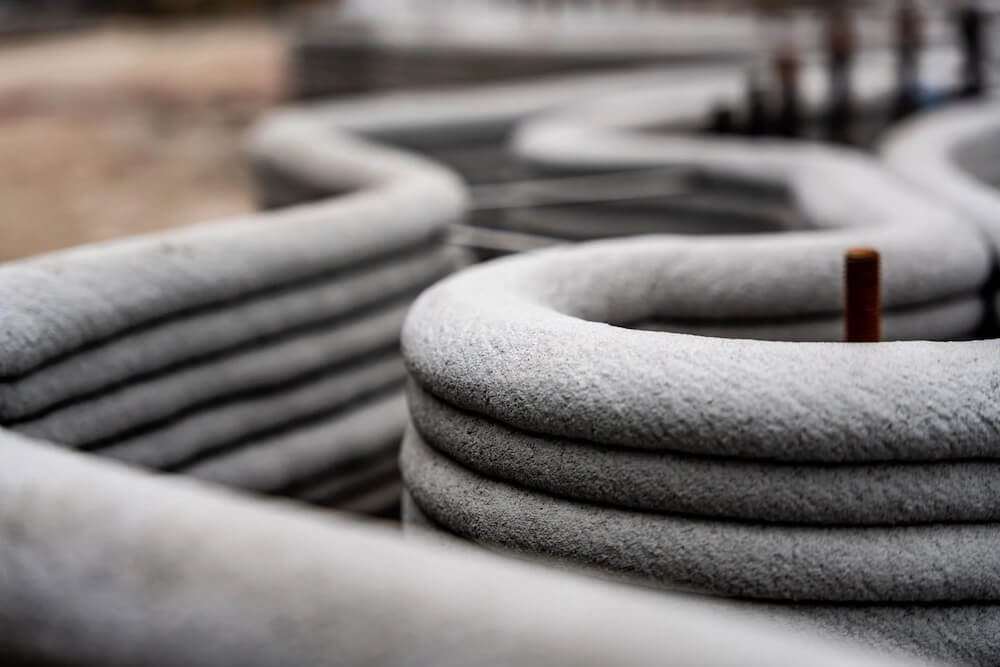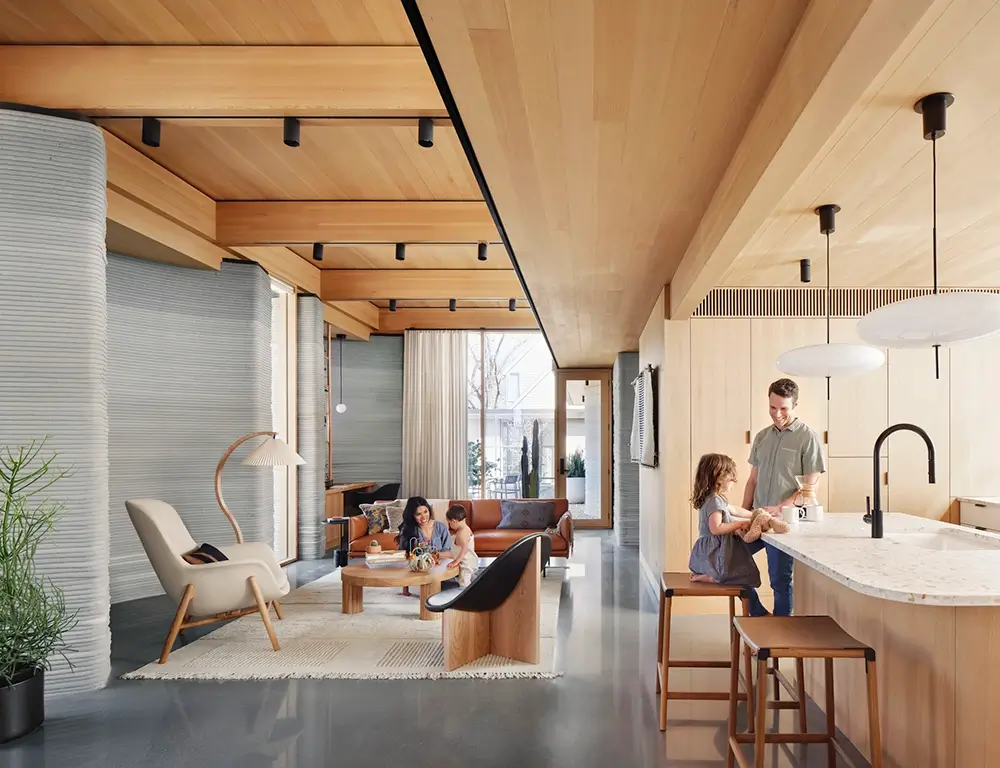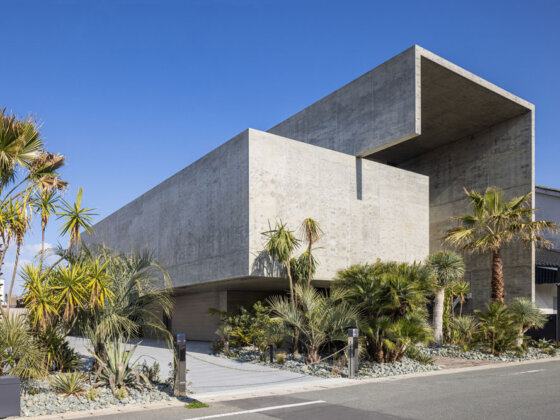San Antonio, Texas, USA
“Designed for net-zero energy and to push the limit of additive manufacturing, House Zero also responds to the climate gracefully, celebrates materials and an innovative assembly process, and uses simple moves to accomplish many things at once,” states Lewis McNeel, an Associate Partner at Lake|Flato.

House Zero, designed by Lake|Flato Architects in collaboration with ICON, is a pioneering 3D-printed residence located in Austin, Texas, serves as a demonstration project for ICON’s proprietary concrete wall printing system, the home integrates advanced construction technology with sustainable design principles.
House Zero recently won a 2024 American Architecture Award by The Chicago Athenaeum: Museum of Architecture and Design and The European Centre for Architecture Art Design and Urban Studies.
Lake|Flato collaborated intensely with ICON’s software developers, robotics engineers, and material scientists to create a new set of architectural strategies for printed concrete construction.
Located in East Austin, House Zero features a 2,000+ sqft, 3 bedroom/2.5 bath home, and a 350 sqft, 1 bedroom/1 bath accessory dwelling unit.
Blending mid-century modernist ranch house aesthetics with the digital possibilities of additive construction, House Zero is the first home of its kind and a major advancement in modern architecture.

For ICON, the project unveiled its next-generation Vulcan construction system and debuted its new Exploration Series of homes to cooperatively develop new design languages and architectural vernaculars with world-class architects based on the opportunities created by construction scale 3D printing.
ICON’s new technology replaces a building system traditionally made up of multiple steps saving time, waste, and cost.
The walls of the home are made with a proprietary cementitious-based material, “Lavacrete,” insulation, and steel for reinforcing.
Lavacrete provides thermal mass that slows heat transfer into the home and the combination of thermal mass, increased insulation, and an airtight wall increases the energy efficiency and reduces lifecycle costs.

In addition to demonstrating the benefits of 3D construction as an innovative building technology, House Zero is also a compelling and climate-responsive home connecting its inhabitants to a native Texas landscape in Austin’s urban context.
Built for permanence and resilience, the house’s flexible plan supports ever-evolving patterns of living and aging-in-place that a family experiences over the course of a lifetime.
“House Zero will be the most incredible 3D-printed home in the world because it was optimized and designed specifically to be 3D printed,” said Jason Ballard, co-founder, and CEO of ICON.
“This is the moment when people around the world will see more of the architectural design freedom and benefits of a 3D-printed house and believe that they too would want to live in one.”

ICON’s proprietary Vulcan technology produces resilient, single-story homes faster than conventional construction methods and with less waste and more design freedom.
Designed and engineered from the ground up for volume 3D printing of homes with precision and speed, the new Vulcan construction system can 3D print homes and structures up to 3,000 square feet, is 1.5x larger and 2x faster than the previous ICON Vulcan 3D printers.
Weighing in at 9,500 lbs, this mammoth of a robot is a digitally-native approach to home construction featuring an automated control system and is operated with an ICON-developed app for mobile devices.
Ballard continued, “If people fall in love with what we’re doing here, it turns out the Vulcan is the only construction system in the world capable of delivering this home and others like it.”

“We are hopeful this catalyzes widespread enthusiasm and excitement for the future of construction and architecture. We’re getting ready to stand up manufacturing in our new facilities and begin larger-scale projects in anticipation of such a response.”
“This welcoming, practical home design expands the performance capabilities of 3D printing technology and is unlike any other home we’ve designed to date,” shares Ashley Heeren, an Associate at Lake|Flato.
“House Zero has allowed Lake|Flato to develop our ethos of human and nature-centric design with an entirely new framework.”


Project: House Zero
Architects: Lake | Flato Architects, Inc.
Design Team: Lewis McNeel, Ashley Heeren, Margaux Palmer, Vicki Yuan, and Nyssa Sherazee
Manufacturer: ICON Technology, Inc.
Client: ICON Technology, Inc.
Photographers: Casey Dunn and Leonid Furmansky











